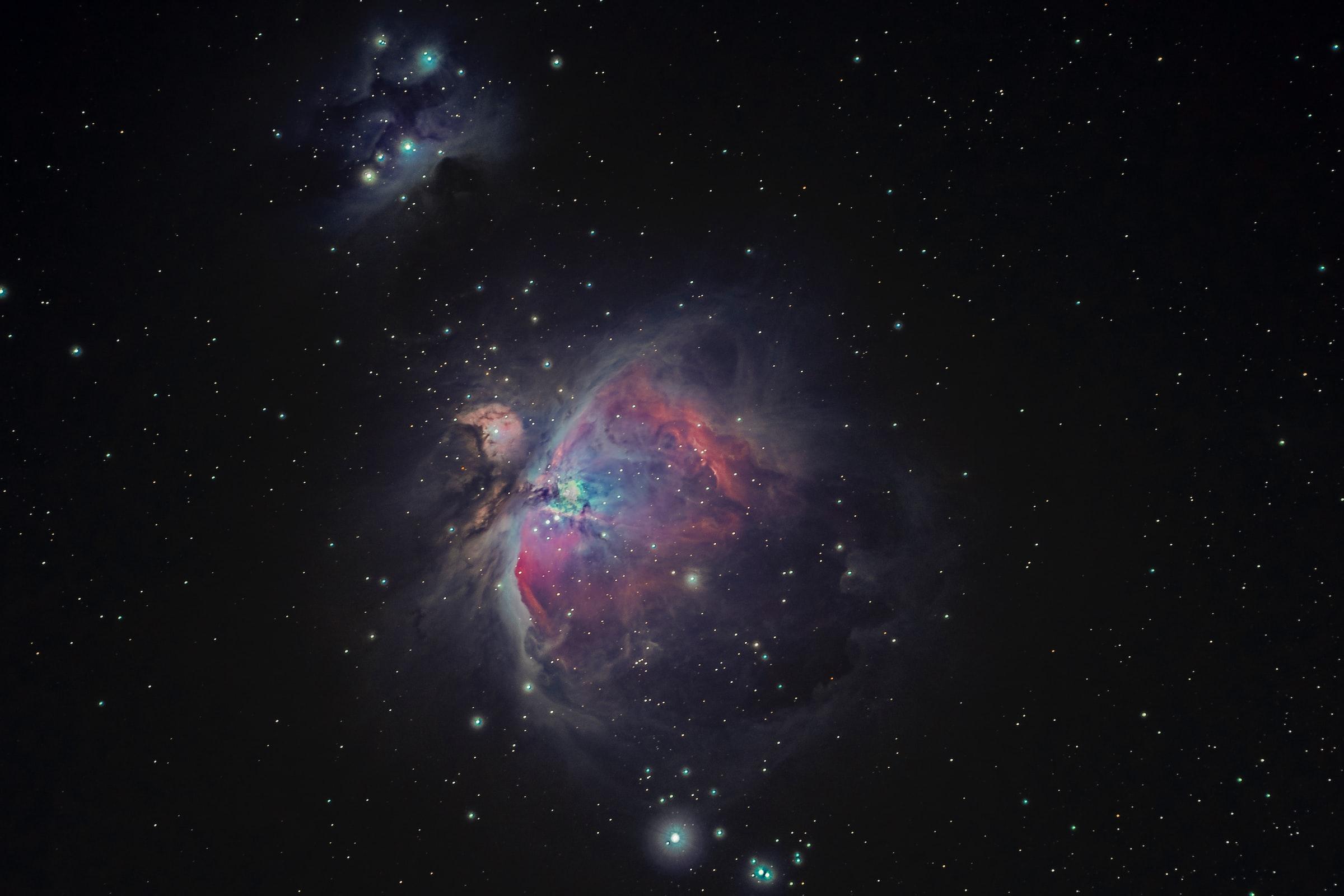
MUSTMultiplexed Survey Telescope
Tsinghua University and the People's Government of Qinghai Province sign a cooperation agreement on the "Multiplexed Survey Telescope (MUST)" project.
2021-05-31
On May 31st, the news website of Tsinghua University reported that on the afternoon of May 27th, the signing ceremony for the cooperation agreement between Tsinghua University and the Qinghai Provincial People's Government on the "Multiplexed Survey Telescope (MUST)" project was held at Tsinghua University. Wang Xiqin, member of the Standing Committee of the Qinghai Provincial Party Committee and Executive Vice President of Tsinghua University, among others, attended the signing ceremony. The ceremony was chaired by Fang Hongwei, Dean of the Office of Research Administration at Tsinghua University.
 Wang Xiqin giving a speech
Wang Xiqin giving a speech
On the ceremony, Wang Xiqin first welcomed the visit of the Qinghai Provincial Committee and thanked Qinghai Province for its trust and support to Tsinghua University in the "MUST" project. Wang Xiqin stated that astronomy and astrophysics are the disciplines with the greatest span of time and space in natural sciences. General Secretary Xi Jinping pointed out that astronomy is a cutting-edge science that nurtures major original discoveries and is a strategic high ground for promoting scientific and technological progress and innovation. Each significant discovery in astronomical observation continuously deepens human understanding of the mysteries of the universe. Space technology is a strategic layout field for the new century's scientific research and development plan of Tsinghua University, and the MUST project is an excellent choice with high consensus internationally and is expected to achieve significant breakthroughs in fundamental research. This time, Tsinghua University and Qinghai Province joined hands to build the MUST project in Saishenteng Mountain, Lenghu Town, Haixi Prefecture, Qinghai Province. Tsinghua University will coordinate relevant resources inside and outside the school and accelerate the progress of designing the project, constructing astronomical observation equipment, and operating and maintaining related research bases. Wang Xiqin hoped that the two sides will further deepen the cooperation between the province and the university, open up a new journey, achieve new results, and establish a new monument, contributing to the construction of a strong country in science and technology, education, and talents.
 Mao Shude introduced the MUST project and the preparatory progress
Mao Shude introduced the MUST project and the preparatory progress
Mao Shude, the director of the Department of Astronomy at Tsinghua University, then introduced the MUST project and the preparation work that had been done. He noted that China currently lags behind in large-aperture telescopes and general-purpose precision telescopes compared to international standards, and therefore it is urgent to develop them. The project aims to build a 6.5-meter wide-field (spectral) survey telescope at the Cold Lake observation base in Qinghai, and carry out all-round astronomical research based on it, striving for breakthroughs in several cutting-edge scientific areas.
Tsinghua University and Qinghai Provincial Government have signed a cooperation agreement on the "Multiplexed Survey Telescope (MUST)" project. Mao Shude, director of the Department of Astronomy at Tsinghua University, introduced the preparation of the MUST project and its early stage. Mao Shude pointed out that China is currently seriously lagging behind the international level in both telescopes and terminal detection equipment, and therefore urgently needs to develop large-caliber survey telescopes and general-purpose precision measuring telescopes. Qinghai Province and Tsinghua University will spend about 7 years to build a 6.5-meter wide-field (spectral) survey telescope in Qinghai's Cold Lake, and based on this, carry out all-round astronomical research, striving to achieve major breakthroughs in several cutting-edge scientific fields.
The Qinghai Provincial Department of Science and Technology introduced the drafting of the MUST project cooperation agreement and its main content. The relevant person in charge stated that in January 2021, Wang Xiqin, executive vice president of Tsinghua University, led a team to visit the Lenghu Astronomical Observation Base in Haixi Prefecture, Qinghai Province, and the Qinghai Provincial Government representatives hosted a special symposium on the MUST project. After that, the two sides actively carried out work, drafted the initial draft of the project cooperation agreement, and after several rounds of revision and soliciting opinions and suggestions from relevant experts, the signing text was finally formed today. It is believed that as an effective means to deepen the cooperation between the province and the university, the implementation of the MUST project will effectively leverage the advantages of Qinghai's Lenghu’s location and resources, promote the improvement of the discipline construction level of Tsinghua University, and achieve mutual benefit and win-win results.
Subsequently, representatives of Tsinghua University and the Qinghai Provincial Government signed the "Qinghai Provincial People's Government and Tsinghua University 'Multiplexed Survey Telescope (MUST)' Project Cooperation Agreement". According to the agreement, both parties will cooperate in the construction of the MUST project in Saishiteng Mountain, Lenghu Town, Haixi Prefecture, Qinghai Province, based on the principle of complementary advantages, mutual benefit, mutual promotion, and common development, and jointly strive to build a world-class astronomical science facility.
Officials from Haixi Prefecture, the Provincial Department of Science and Technology, the Lenghu Industrial Park, and representatives of Tsinghua University's Department of Astronomy, Research Institute, Domestic Cooperation Office, Laboratory Office, and Finance Office participated in the signing ceremony.
Contributed by: Research Institute Edited by: Chen Xiaoyan, Li Huashan Reviewed by: Lv Ting, Zhou Xiangnan
